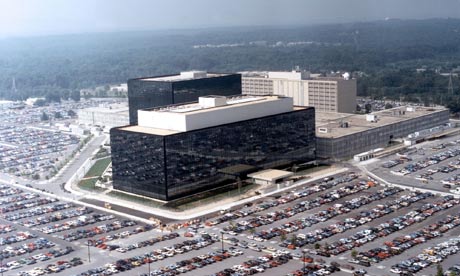As the US government depicts the Defense Department as shrinking due to budgetary constraints, the Washington Post this morning announces "a major expansion of [the Pentagon's] cybersecurity force over the next several years, increasing its size more than fivefold." Specifically, says the New York Times this morning, "the expansion would increase the Defense Department's Cyber Command by more than 4,000 people, up from the current 900." The Post describes this expansion as "part of an effort to turn an organization that has focused largely on defensive measures into the equivalent of an Internet-era fighting force." This Cyber Command Unit operates under the command of Gen. Keith Alexander, who also happens to be the head of the National Security Agency, the highly secretive government network that spies on the communications of foreign nationals -- and American citizens.
The Pentagon's rhetorical justification for this expansion is deeply misleading. Beyond that, these activities pose a wide array of serious threats to internet freedom, privacy, and international law that, as usual, will be conducted with full-scale secrecy and with little to no oversight and accountability. And, as always, there is a small army of private-sector corporations that will benefit most from this expansion.
Disguising aggression as "defense"Let's begin with the way this so-called "cyber-security" expansion has been marketed. It is part of a sustained campaign which, quite typically, relies on blatant fear-mongering.
In March, 2010, the Washington Post published an amazing Op-Ed by Adm. Michael McConnell, Bush's former Director of National Intelligence and a past and current executive with Booz Allen, a firm representing numerous corporate contractors which profit enormously each time the government expands its "cyber-security" activities. McConnell's career over the last two decades -- both at Booz, Allen and inside the government -- has been devoted to accelerating the merger between the government and private sector in all intelligence, surveillance and national security matters (it was he who led the successful campaign to retroactively immunize the telecom giants for their participation in the illegal NSA domestic spying program). Privatizing government cyber-spying and cyber-warfare is his primary focus now.



